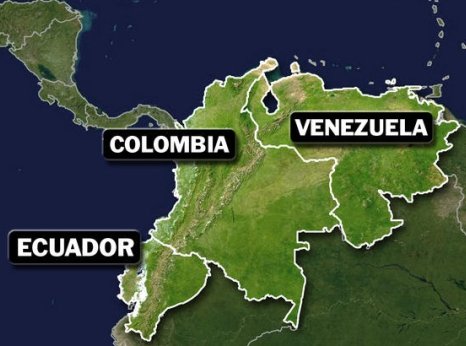Colombia: Provide Health To Bari People

Located in north-eastern Colombia, in the department of Norte de Santander, the Catatumbo region stretches between the Eastern Andes and the vicinity of Lake Maracaibo in Venezuela. It is rich in natural resources, particularly oil, but marked by extreme poverty, high militarisation, armed violence, and the lack of access to health, food, education, water and housing. These conditions have created a hostile environment for social leadership and human rights defence. The region also lacks infrastructure and connectivity with the rest of Colombia and remains one of the country’s main enclaves for coca cultivation and cocaine production and transit.
Amnesty International has monitored violence against human rights defenders in Catatumbo for several years, with a focus on the Catatumbo Social Integration Committee (CISCA). In 2020 and 2023, Amnesty documented the challenges to defending collective rights to land, territory and the environment in the region, highlighting how extreme poverty and the lack of access to economic and social rights create a tense and hostile environment, especially for social leaders.
Civil society in Catatumbo is made up mainly of peasant rights organisations and the Bari Indigenous People. This Indigenous People live in the Perijá mountains and near the Catatumbo-Bari National Natural Park in the northern part of the region and at both sides of the border between Colombia and Venezuela. The Bari settlements are located in rural areas of several municipalities of Catatumbo (El Carmen, Convención, Teorama, El Tarra and Tibú), but are far from the municipalities’ urban centres, where the few civilian State institutions present in Catatumbo are concentrated. Since the end of August, regional organisations such as CISCA and national ones such as Asociación Minga have warned of the critical health crisis affecting the Bari, highlighting the context of child malnutrition, poverty and lack of access to public services that this Indigenous People has experienced for years.
The Catatumbo region has endured decades of armed confrontation involving the military forces and various armed groups. Since mid-January 2025, particularly violent clashes have erupted between the National Liberation Army (ELN) and dissident groups of Front 33 of the former Revolutionary Armed Forces of Colombia – People’s Army (FARC-EP), now part of a group under the name of General Staff of Blocks and Fronts (EMBF). These confrontations have had severe impact on civilians, leaving dozens dead and tens of thousands forcibly displaced. From the outset of this crisis, Amnesty International has called for the protection of the civilian population through an Urgent Action and a Public Statement, and has also condemned, through a second Urgent Action, stigmatising statements by the President of the Republic, who claimed that Catatumbo’s civil society was “permeated” and “subordinated” to armed groups—remarks that place communities at grave risk.
Amnesty International, as well as several Colombian social organisations, have called to the Government to support and implement structural solutions based on a stronger presence of civilian State institutions, such as the Social Pact for the Territorial Transformation of Catatumbo, that should include and be participatively build with the local civil society organisations, including the authorities of the Bari Indigenous People.